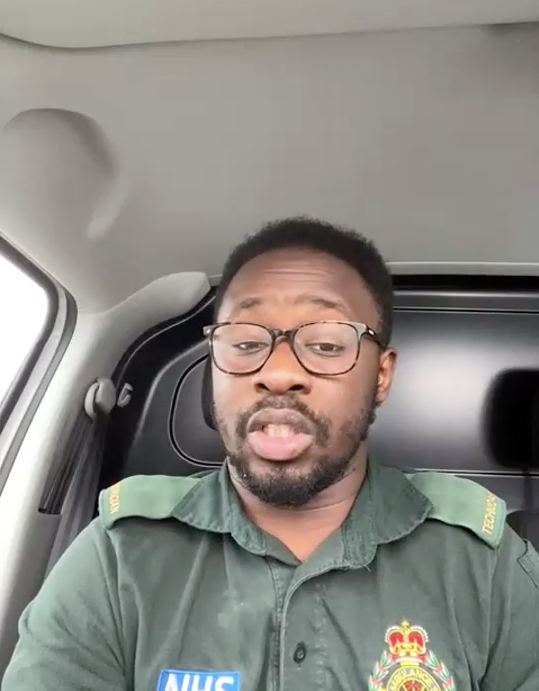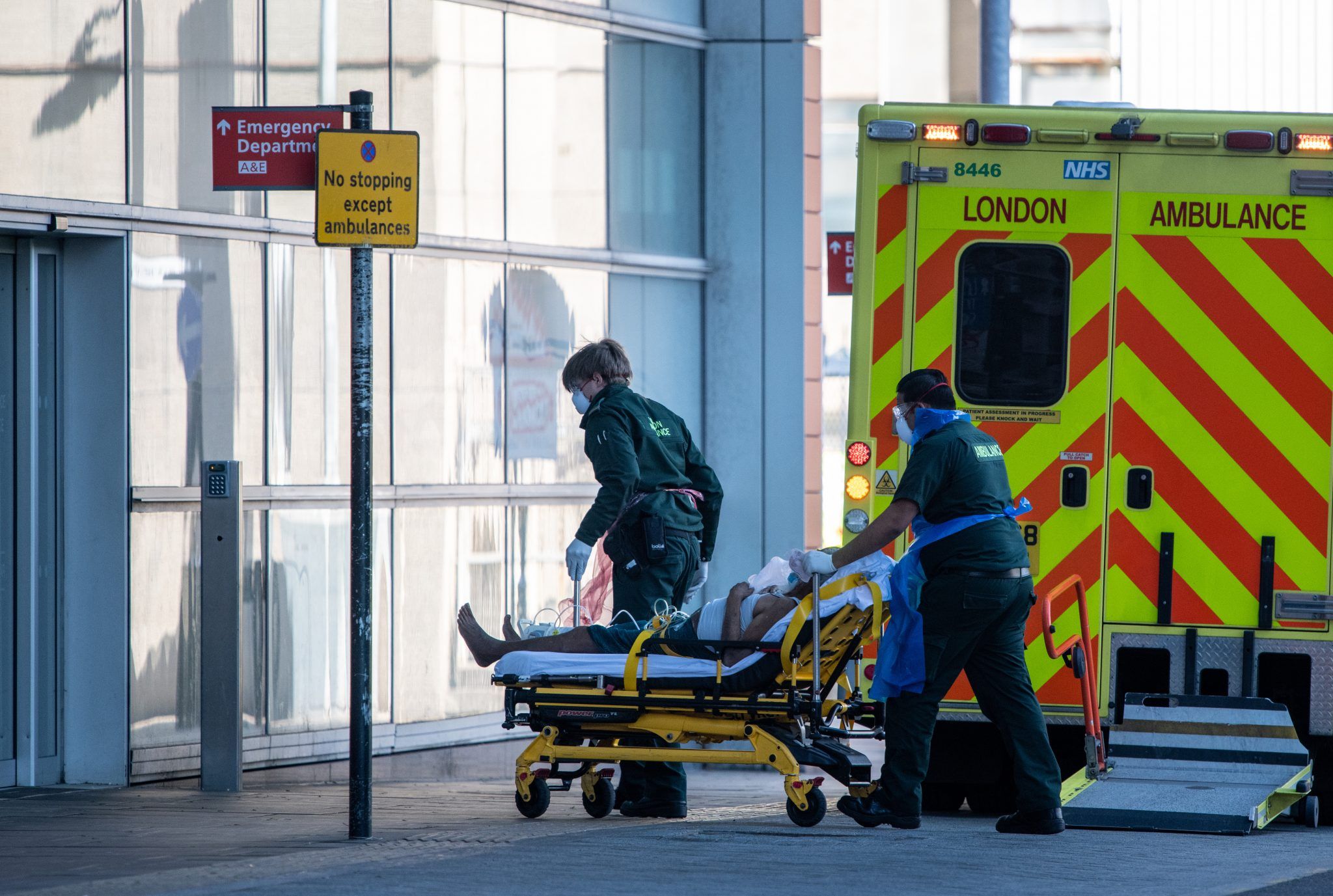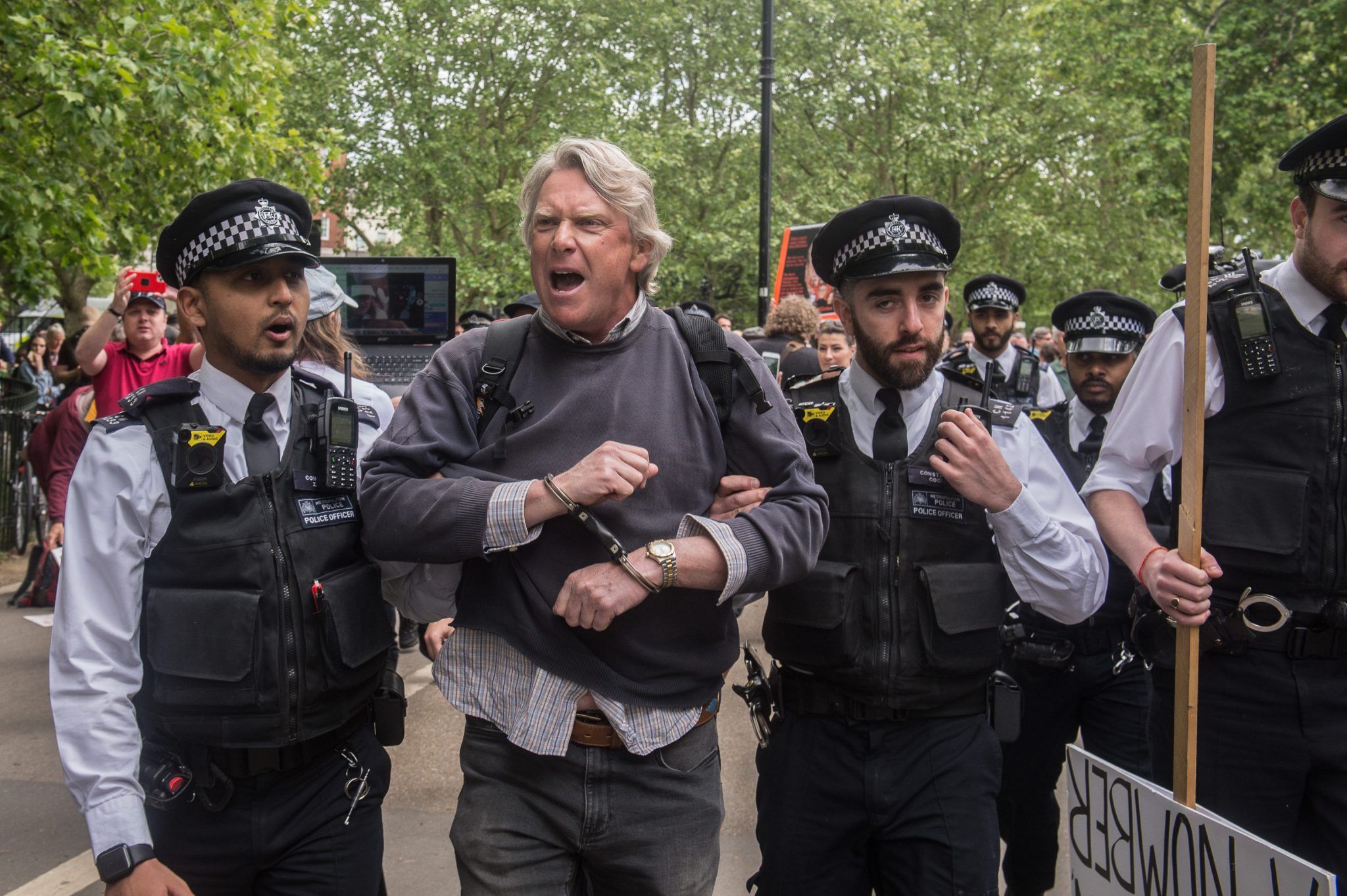

Share
8th February 2021
05:44pm GMT

 George spoke exclusively to JOE as part of his role in the 'We are the NHS' campaign.[/caption]
The UK recently registered 112,000 coronavirus deaths, so you’d be forgiven for thinking it would have an impact on the wellbeing of healthcare workers constantly having to deal with patients in their final moments.
George says: “It can get to you. It can. Especially when you’re going in and out of hospitals and seeing people who may not recover from the virus.
“But I’m only there to do what I can do, sometimes we have to remember that.”
In terms of the toll the pandemic has taken on his own mental health, George relies on the support of his fellow paramedics as a vital support network.
“You have your colleague and your crew mate who you’re with for 12 hours, so it’s really important if you are having a bit of a wobble that you chat with them.”
George says any reports of hospitals being ‘empty’ are completely untrue.
“They’ve been really busy,” he says.
“People have been waiting outside in ambulances for several hours, in some cases, because of this. I myself have been with one patient for a good two, two and a half hours in the back of an ambulance.
“It’s almost as if hospitals are being overworked, in a sense - but they’re dealing with it really well.”
[caption id="attachment_263554" align="alignnone" width="2048"]
George spoke exclusively to JOE as part of his role in the 'We are the NHS' campaign.[/caption]
The UK recently registered 112,000 coronavirus deaths, so you’d be forgiven for thinking it would have an impact on the wellbeing of healthcare workers constantly having to deal with patients in their final moments.
George says: “It can get to you. It can. Especially when you’re going in and out of hospitals and seeing people who may not recover from the virus.
“But I’m only there to do what I can do, sometimes we have to remember that.”
In terms of the toll the pandemic has taken on his own mental health, George relies on the support of his fellow paramedics as a vital support network.
“You have your colleague and your crew mate who you’re with for 12 hours, so it’s really important if you are having a bit of a wobble that you chat with them.”
George says any reports of hospitals being ‘empty’ are completely untrue.
“They’ve been really busy,” he says.
“People have been waiting outside in ambulances for several hours, in some cases, because of this. I myself have been with one patient for a good two, two and a half hours in the back of an ambulance.
“It’s almost as if hospitals are being overworked, in a sense - but they’re dealing with it really well.”
[caption id="attachment_263554" align="alignnone" width="2048"] Hospitals in London declared a major incident in December due to the fact they were overwhelmed. (Photo: Getty)[/caption]
Recent news would support George’s assessment, with hospitals in London recently declaring a major incident after becoming overwhelmed.
“Hospitals have been split. At least in the West Midlands, we have a hot zone and a cold zone.
“If you’re flagging symptoms for Covid, you go to the hot zone, if you’re not you go to the cold zone. But sometimes in the hot zone there is no room, and so patients have had to wait in ambulances.”
Many believe the health sector is underfunded and in dire need of bolstering. The NHS is trying to address this issue by hiring more essential frontline workers - including paramedics, such as George.
“The ability to help someone in a time of need - there’s never been a better time to become a paramedic,” he says.
“I don't want to be clapped for my job, I'm just doing what I do.”
Despite the fact that over 112,000 people have lost their lives to coronavirus in the UK, there still exists an insular group of sceptics who doubt the legitimacy (and in some cases the sheer existence) of the virus.
[caption id="attachment_263555" align="alignnone" width="2048"]
Hospitals in London declared a major incident in December due to the fact they were overwhelmed. (Photo: Getty)[/caption]
Recent news would support George’s assessment, with hospitals in London recently declaring a major incident after becoming overwhelmed.
“Hospitals have been split. At least in the West Midlands, we have a hot zone and a cold zone.
“If you’re flagging symptoms for Covid, you go to the hot zone, if you’re not you go to the cold zone. But sometimes in the hot zone there is no room, and so patients have had to wait in ambulances.”
Many believe the health sector is underfunded and in dire need of bolstering. The NHS is trying to address this issue by hiring more essential frontline workers - including paramedics, such as George.
“The ability to help someone in a time of need - there’s never been a better time to become a paramedic,” he says.
“I don't want to be clapped for my job, I'm just doing what I do.”
Despite the fact that over 112,000 people have lost their lives to coronavirus in the UK, there still exists an insular group of sceptics who doubt the legitimacy (and in some cases the sheer existence) of the virus.
[caption id="attachment_263555" align="alignnone" width="2048"] An anti-lockdown protestor is led away in handcuffs by police. (Photo: Getty)[/caption]
Just last week, a woman from Fareham in Hampshire was banned from all hospitals after repeatedly posting coronavirus conspiracy theories on social media.
George feels a lot of frustration when talking about Covid sceptics who continue to peddle such myths, either online or in person.
“They have absolutely no idea what we go through every single day at work, and the things we’re seeing.
“During the first lockdown, people doubted Covid until they knew someone associated with it, or someone who caught the virus - someone in their family or someone they are close to.”
This level of ignorance has led to further lockdowns, George said.
“The problem with that is, by playing it like that, not following the guidelines, they are spreading to others - and hurting everyone else.”
When asked how he feels paramedics should be respected, George's answer is simple.
“Just follow the restrictions and the guidelines, and that's good enough for me.”
George is working with the NHS on its ‘We are the NHS’ campaign. To find out more about a career in the NHS, please search ‘NHS Careers’ or visit ‘We are the NHS’ to find available roles and training support on offer.
An anti-lockdown protestor is led away in handcuffs by police. (Photo: Getty)[/caption]
Just last week, a woman from Fareham in Hampshire was banned from all hospitals after repeatedly posting coronavirus conspiracy theories on social media.
George feels a lot of frustration when talking about Covid sceptics who continue to peddle such myths, either online or in person.
“They have absolutely no idea what we go through every single day at work, and the things we’re seeing.
“During the first lockdown, people doubted Covid until they knew someone associated with it, or someone who caught the virus - someone in their family or someone they are close to.”
This level of ignorance has led to further lockdowns, George said.
“The problem with that is, by playing it like that, not following the guidelines, they are spreading to others - and hurting everyone else.”
When asked how he feels paramedics should be respected, George's answer is simple.
“Just follow the restrictions and the guidelines, and that's good enough for me.”
George is working with the NHS on its ‘We are the NHS’ campaign. To find out more about a career in the NHS, please search ‘NHS Careers’ or visit ‘We are the NHS’ to find available roles and training support on offer.Explore more on these topics:

Page not found - JOE.co.uk
coronavirus